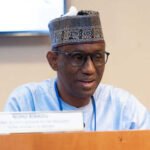The World Bank has approved funds for a project that focuses on increasing learning readiness and retention of girls in upper primary and lower secondary grades of basic education in Mozambique.
The project, according to the bank, will be implemented nationwide, but with special attention to underserved areas that face greater educational challenges
Mozambique has one of the highest illiteracy rates in the region, despite progress made over the last decades.
The country’s human capital indicators are low, with wide geographical and gender disparities.
Dropout rates are high, especially among girls, and education access continues to be a challenge, especially at the preschool and upper grades of basic education where large enrolment disparities between boys and girls persist.
‘Achieving universal basic education for girls is critical because it allows them to mature and become productive adults in the country’s economic fabric’, World Bank Country Director for Mozambique, Madagascar, Comores, Mauritius, and Seychelles, Idah Pswarayi-Riddihough, said in a statement.
“Educating girls has multiplying benefits on future generations, as it engenders a virtuous cycle of empowerment, lower fertility, and greater productivity, with long-lasting effects to communities’.
The funding includes an International Development Association (IDA) grant of $160 million and a trust fund grant from the Global Partnership for Education (GPE) of $139 million for a total amount of $299 million.
As part of this effort to strengthen educational services, the project will build 100 preschool facilities, known as Escolinhas, in rural areas with low educational attainment and support improvements in reading skills for students in grades one to three by training and supporting teachers and ensuring that learning materials are accessible to children in those grades.
‘Increasing girls’ access and retention in upper primary and lower secondary education is a key objective of this operation’,Education Specialist and the project’s co- team leader, Lucia Nhampossa, said.
‘This will be achieved by creating a safe and inclusive school environment for girls, expanding the supply of lower secondary schools country wide, especially in areas with low enrollment of girls, and improving the conditions of school infrastructure to help attract and retain girls’.
In addition, the project will implement sexual and reproductive health education programmes and gender-based violence awareness and mitigation campaigns in upper primary and lower secondary grades, as well as mentoring of girls.
Source: World Bank
Photo source: Global Partnership for Education




